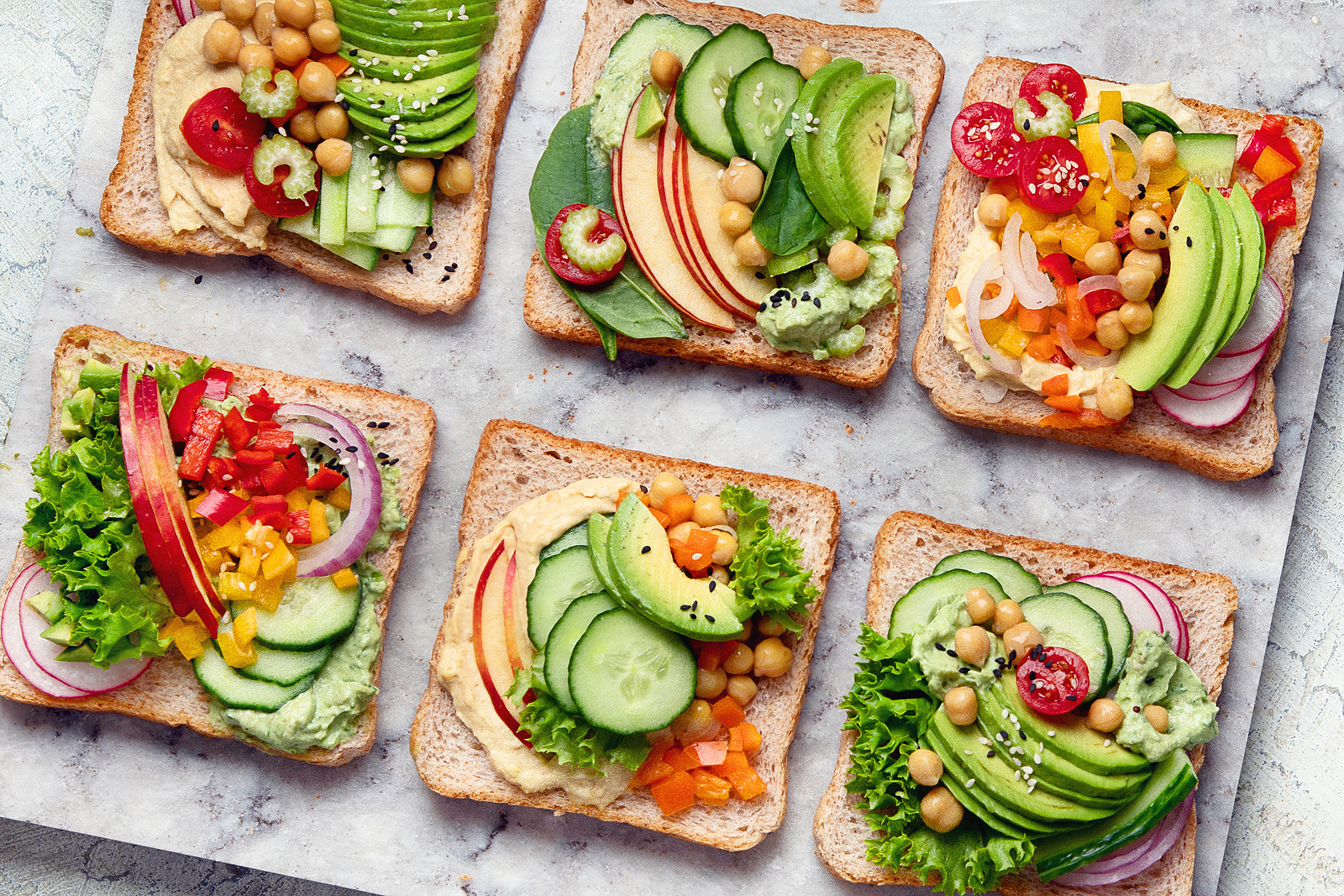
Plant-based or plant-forward dietary patterns emphasize plant-based foods. In addition to fruits and vegetables, this category also includes nuts, seeds, oils, whole grains, legumes, and beans. It doesn’t mean you’re a strict vegan or vegetarian who never eats meat or dairy. Instead, you are increasing the proportion of plant-based foods in your diet. A plant-based diet does not preclude meat consumption. It means that most of your meals consist of vegetables, whole grains, and fruits.
Two-thirds of your plate should consist of these plant-based foods. The remaining one-third should consist of a lean animal protein, such as chicken or fish, or a plant-based protein, tofu, or beans. (Fork Over Knives, 2022)
Why Should You Try Plant-based Eating?
It’s Immune-Boosting
Plants have nutrients found nowhere else. Plant vitamins, minerals, phytochemicals, and antioxidants support your immune system by maintaining cell health and body balance. A healthy immune system can recognize and kill cancer-causing cell alterations.
Anti-Inflammatory Plants
Plant nutrients reduce inflammation. Phytochemicals and antioxidants improve your immune system and counteract pollutants, processed foods, bacteria, and viruses. Plant antioxidants absorb harmful free radicals.
Eat a plant-based diet and listen to your body’s instincts to minimize inflammation. Prolonged inflammation can damage cells and tissues and is connected to cancer and arthritis. A plant-based diet eliminates several illness causes.
Veggies Help Maintain Weight
Maintaining a healthy weight reduces cancer risk. Maintaining a healthy weight is second only to quitting smoking in preventing cancer. Obesity causes inflammation and hormone imbalance. Obese people are more likely to develop cancers of the colon, breast after menopause, uterus, esophagus, kidneys, and pancreas. Plant-based diets exclude many fattening items and aids weight loss.
Better Gut Health
Plant-based diets increase gut health, allowing you to absorb more immune-boosting and inflammation-reducing nutrients. Fiber reduces cholesterol, stabilizes blood sugar, and promotes intestinal health. A plant-based diet minimizes illness risk. A plant-based diet’s benefits go beyond cancer prevention. Heart disease, stroke, diabetes, and mental disorders are less likely to happen if you eat mostly plants.
(Katherine D. McManus)
How To Get Started With A Plant-Based Diet
If the idea of a plant-based diet sounds appealing, but you’re not sure where to begin, we are here to help.
Veganism and the whole-food, plant-based (WFPB) diet have some similarities, but they also diverge in meaningful ways. In a whole-foods, plant-based diet, the focus is on the whole, unprocessed foods. Components that are either unprocessed or minimally refined are included in this definition. In contrast, veganism refers to a diet entirely devoid of animal products such as meat, dairy, eggs, and honey. Suppose you’re looking to avoid highly processed meats and cheeses. In that case, you’ll want to stick to a WFPB diet, which is all about eating whole or minimally processed, near-natural foods.
Variety is the Spice of Life
On a plant-based diet, you’ll have access to various foods such as a variety of apples, bananas, grapes, berries, and citrus fruits. You will have access to multiple vegetables, such as bell peppers and corn. Root vegetables, including potatoes, carrots, parsnips, sweet potatoes, etc., are tubers. Oats, quinoa, brown rice, whole wheat, are examples of whole grains.
There are many types of legumes, including beans of all kinds, lentils. Tofu and tempeh, whole-grain flours, whole-grain bread, and plant-based milk are just some other items you can enjoy. However, these meals are high in calories and might lead to weight gain if consumed in excess.
Even while eating plant-based meals, you must avoid sugar and fat. Using appropriate cooking methods and knowing how to prepare veggies can maximize the benefits of a plant-based diet. Deep-fried vegetables are not a healthy alternative. Reduce your sweets intake and opt for whole grains. White rice, pasta, and bread aren’t whole grain products. Choose whole-wheat pasta, bread, and rice over bleached flour spaghetti.
(MD Anderson Cancer Center and Alexander, 2021)
Get ready for improved health and well being. Start your plant-based journey today!
Works Cited
MD Anderson Cancer Center, MD Anderson Cancer Center, and Heather Alexander. “5 Benefits of a Plant-Based Diet.” MD Anderson Cancer Center, MD Anderson Cancer Center, 4 Nov. 2020, www.mdanderson.org/publications/focused-on-health/5-benefits-of-a-plant-based-diet.h20-1592991.html.
Katherine D. McManus, MS. “What Is a Plant-Based Diet and Why Should You Try It?” Harvard Health, 16 Nov. 2021, www.health.harvard.edu/blog/what-is-a-plant-based-diet-and-why-should-you-try-it-2018092614760.
“Beginner’s Guide to a Plant-Based Diet.” Forks Over Knives, 30 Apr. 2022, www.forksoverknives.com/how-tos/plant-based-primer-beginners-guide-starting-plant-based-diet/.
















